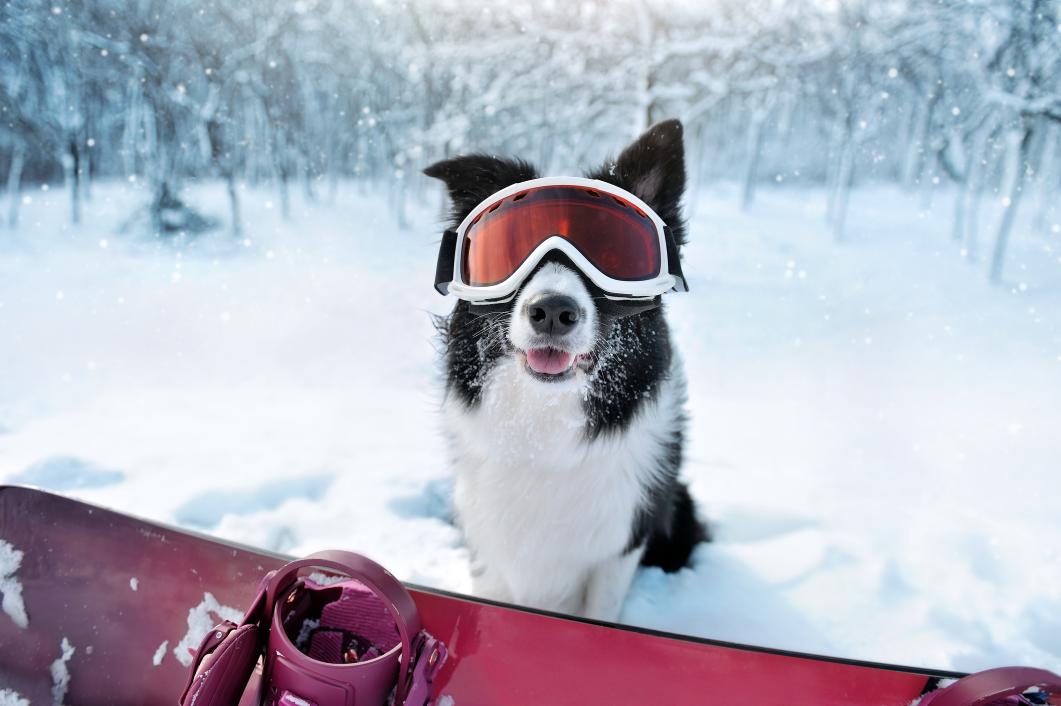Holiday Pet Safety Tips

It’s that time of year again: holiday bells are ringing, snow is falling, and the piney scent of wreaths and decorative trees is in the air. Whether you celebrate Christmas, Hanukkah, Kwanzaa, or another holiday, there’s plenty of joy to go around.
And there are also plenty of holiday hazards to watch out for if you share your home with furry family members.
That’s why the team at Flowers Mill Veterinary Hospital has come up with a list of holiday pet safety tips to keep your whole family safe this season.
How to Keep Pets Safe During the Holiday Season: 3 Tips
1. Keep Flames and Fires Out of Reach
There’s nothing like the sight of candles on a menorah flickering against a dark, cold window. Or Christmas candles sending up scents of peppermint, gingerbread, and pine. Whether your holiday traditions call for candles or cozy fires in the fireplace, it’s crucial to keep your pets’ safety in mind.
Avoid leaving open flames of any size unattended if your pets are in the same room. Put a pet-safe fireplace fence around the fireplace or wood stove. Burn candles out of reach of your dog or cat. Crate your pet if you have to leave the room momentarily to use the restroom or grab a load of laundry.
It only takes a few seconds for a kitty to jump up on a windowsill and knock a candle over!
2. Know the Most Common Holiday Food Hazards for Pets
From honey-baked hams and turkey bones to onions and pumpkin pie spice, there’s a minefield of hazardous holiday foods to avoid feeding your pet.
Store-bought ham contains a lot of sodium and preservatives. If your dog or cat chows down on it, they can get very sick. Too much sodium can even lead to kidney damage and seizures in dogs and cats alike.
Cooked turkey bones are softer than raw bones, and they can splinter and puncture your pet’s internal organs.
Onions, garlic, scallions, and other plants in the allium family contain a compound that’s toxic to cats and dogs. If your pet eats food with any form of allium in it—whether it’s raw, cooked, powdered, or dried—it can lead to life-threatening hemolytic anemia.
Pumpkin spice typically contains things like nutmeg and cloves, which can be toxic to pets in large amounts.
Here’s an incomplete list of additional holiday food hazards for pets to avoid:
- Caffeine
- Chocolate
- Candy
- Nuts
- Alcoholic beverages (looking at you, eggnog!)
- Raisins and grapes
Make sure you’re familiar with the holiday food hazards you use for holiday cooking and keep them safely out of reach of your pet. It also helps to keep a pet emergency kit on hand for the unthinkable.
3. Avoid Leaving Gift-Wrapping Supplies Out
Bows, crinkly paper, and ribbons, oh my! When it comes to gift-wrapping supplies, there’s a lot for your pet to love. What’s more fun than chasing a wadded-up piece of gift wrap? Or unspooling a ball of brightly colored ribbon?
It’s all fun and games until your dog or cat ingests some of the gift-wrapping materials and gets sick. Or worse.
Ribbons can cause serious damage to your pet’s intestines. Foil wrapping paper can cause internal blockages. So can big, sparkly bows.
Make sure you store all gift-wrapping supplies out of reach and clean up quickly after your family present-opening session.
Have a Happy (and Safe) Holiday Season!
If you have any questions about protecting your pet during the holidays or are experiencing an emergency during our office hours, reach out to us right away at (215) 752-1010.
From our team to yours, we wish you and your pets a happy, healthy holiday season.

